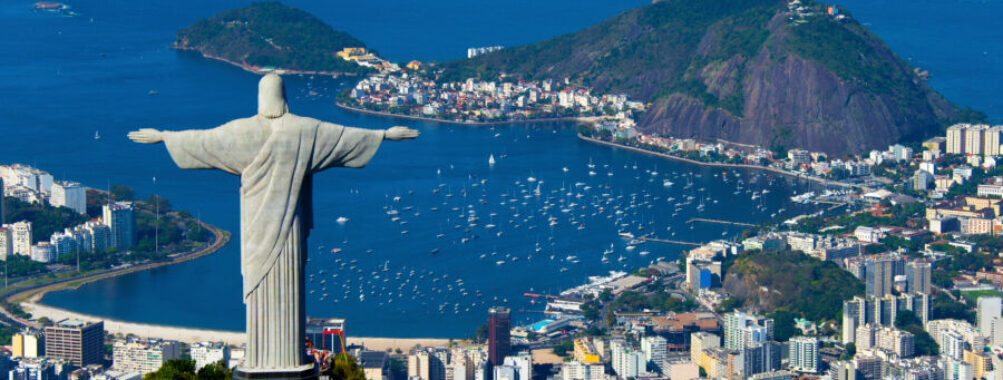
Brazil Trip Cost: 10 Days of Adventure for Under $1500
Dreaming of samba, sun-soaked beaches, and the vibrant culture of Brazil? You’re not alone! But before you pack your bags, let’s talk money. Planning a trip to this South American gem can be exciting, but it’s smart to know what you’re getting into cost-wise. Two people can typically go on a week-long trip to Brazil for around $2,100. This includes flights, accommodation, food, and activities.
This beautiful country offers something for every budget. From the bustling streets of Rio to the lush Amazon rainforest, Brazil’s diverse landscapes promise unforgettable experiences. But costs can add up fast if you’re not careful. Think about what you want to see and do, then plan your budget accordingly.
Ready to start crunching numbers? We’ll break down the costs for flights, hotels, meals, and must-see attractions. Plus, we’ll share some money-saving tips to help you make the most of your Brazilian adventure without breaking the bank. Let’s dive in and plan your dream trip!
Contents
- Key Takeaways
- Planning Your Trip
- Best Time to Visit
- Travel Documentation
- Health and Safety
- Budgeting Your Trip
- Accommodation Costs
- Daily Expenses
- Additional Costs
- Travel and Transportation
- In-City Transportation
- Intercity Travel Options
- Accommodation Options
- Luxury Accommodations
- Mid-Range Options
- Budget Accommodations
- Food and Dining
- Local Cuisine
- Food Costs
- Budget-Friendly Eats
- Activities and Sightseeing
- Cultural Landmarks
- Natural Wonders
- Entertainment
- Regions and Destinations
- Urban Highlights
- Coastal Retreats
- Adventure in the Amazon
- Understanding Trip Expenses
- Flight Costs
- Activity Expenses
- Tips for Saving Money
- Final Advice
- More Travel Guides
Key Takeaways
- Brazil trips cost about $2,100 for a week for two people
- Costs vary widely based on travel style and destinations
- Smart planning can help you save money while enjoying Brazil’s top sights
Planning Your Trip
Getting ready for your Brazil adventure takes some smart preparation. You’ll want to time your visit right, sort out important documents, and stay healthy during your travels. Let’s break down the key things to keep in mind as you plan.
Best Time to Visit
Brazil is huge, so the best time to go depends on where you’re headed. For Rio de Janeiro and São Paulo, March to May and September to November are great. The weather’s nice and crowds are smaller. Avoid December to February – it’s super busy and pricey.
If you’re beach-bound to spots like Fortaleza or Salvador, July to September is perfect. The sun’s out and rain’s rare. But watch out for school holidays in July when prices jump.
Carnival in Rio is amazing, but you need to book way ahead. It’s usually in February or March, and hotels fill up fast. Expect to pay top dollar during this wild party time.
Travel Documentation
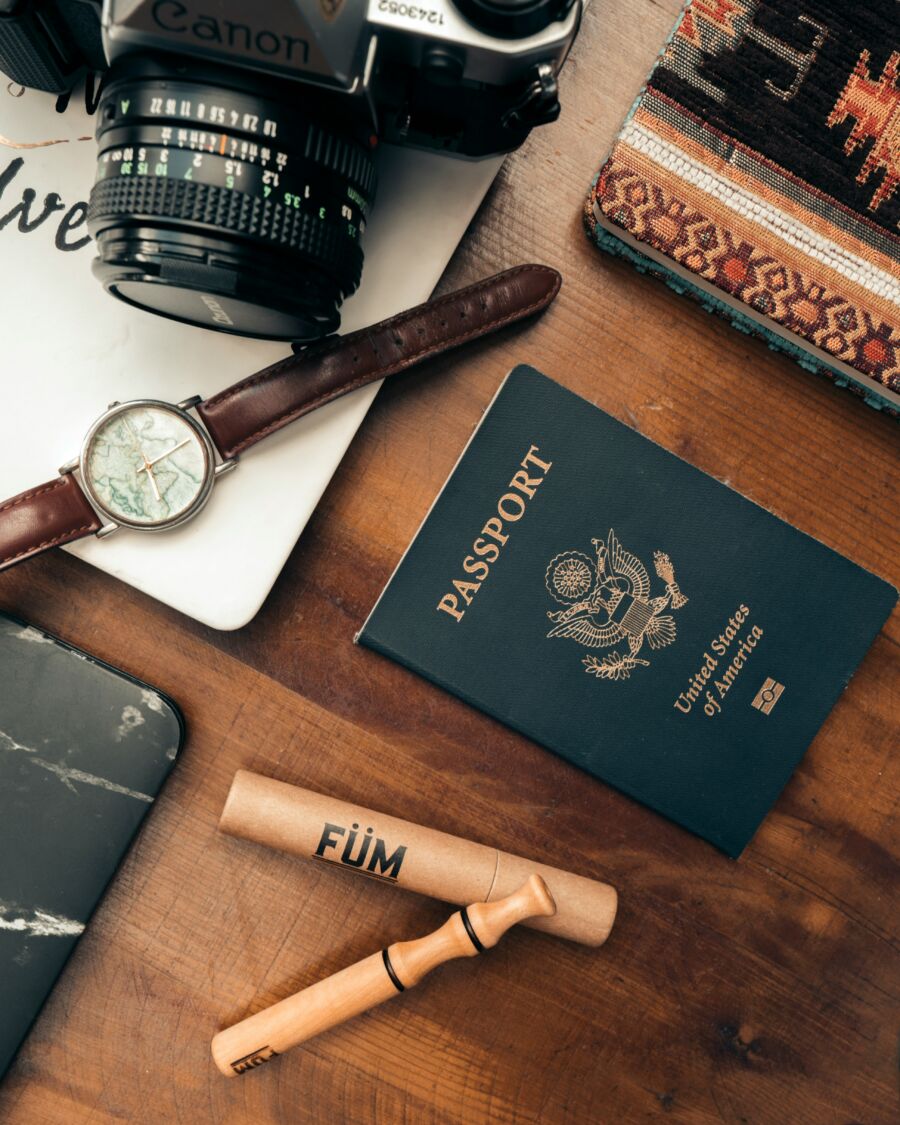
You’ll need a passport that’s valid for at least six months after your trip ends. Most tourists don’t need a visa for stays up to 90 days, but double-check – rules can change.
Get travel insurance that covers medical care. Brazil’s public hospitals can be crowded, so you might want private care if you get sick.
Bring copies of important docs like your passport and insurance info. Keep them separate from the originals in case of theft.
Health and Safety
Get your shots! Some parts of Brazil require the yellow fever vaccine. Your doctor might suggest others like hepatitis A and typhoid. Do this at least a month before you go.
Pack bug spray with DEET. Mosquitoes can carry nasty stuff like Zika and dengue fever. Cover up at dawn and dusk when they’re most active.
Be street smart in cities. Keep an eye on your stuff, especially in crowded spots. Use official taxis or ride-share apps instead of hailing cabs on the street.
Drink bottled water to avoid tummy troubles. It’s cheap and easy to find. Skip ice in drinks unless you’re sure it’s from filtered water.
Budgeting Your Trip
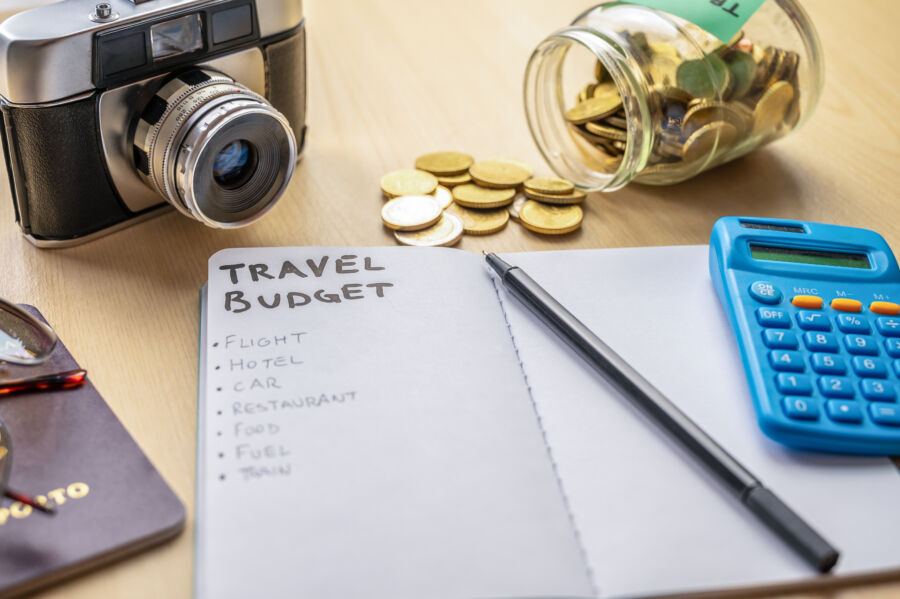
Planning a trip to Brazil means crunching some numbers. Let’s break down the costs you’ll face and how to make your money go further in this beautiful country.
Accommodation Costs
Brazil offers a wide range of places to stay. Hostels are your cheapest bet, costing around $10-20 per night. These are great for meeting other travelers and saving cash.
Mid-range hotels run about $50-100 nightly. You’ll get more comfort and privacy here. For a splurge, luxury hotels start at $200 and can go way up.
Vacation rentals are another option. Prices vary, but you can often find good deals, especially for longer stays or groups.
Daily Expenses
Food in Brazil can be cheap if you eat like a local. Street food and small restaurants offer meals for $5-10. Fancy spots will set you back $20-30 per person.
Getting around cities is affordable. Bus fares are usually under $1. Taxis and ride-shares cost more but can be worth it for convenience and safety.
Activities range from free (beaches, parks) to pricey (guided tours). Budget about $20-50 per day for sightseeing and fun.
Additional Costs
Don’t forget these extras in your budget:
- Flights to Brazil (varies widely)
- Visa fees (if needed)
- Travel insurance
- Souvenirs and shopping
Tip: Brazil can be pricey in tourist hotspots. Venture off the beaten path to stretch your money further.
Remember, prices can change based on season and location. High season (December-March) sees higher costs, while shoulder seasons offer better deals.
Travel and Transportation

Getting around Brazil can be affordable if you plan wisely. Cities offer many options, while long-distance trips require careful consideration of time and budget.
In-City Transportation
Public transit is cheap and efficient in major Brazilian cities. In Rio de Janeiro and São Paulo, the metro is your best bet. A single ride costs about 5 BRL (around $1). Get a multi-day pass to save money if you’re staying a while.
Buses cover areas the metro doesn’t reach. They’re slightly cheaper but can get crowded. Uber and local taxi apps are good for late nights or hauling luggage. They cost more than public transit but less than traditional taxis.
Renting a bike is fun in some areas. It’s a great way to explore beach neighborhoods or parks. Many cities have bike-share programs with reasonable daily rates.
Intercity Travel Options
For trips between cities, buses are often your cheapest choice. They’re comfy and run frequently on major routes. A 6-hour ride from Rio to São Paulo costs about 100-150 BRL ($20-30).
Flying saves time but costs more. Budget airlines like Azul and GOL offer decent deals if you book early. A one-way flight from Rio to São Paulo might run 200-400 BRL ($40-80), depending on when you book.
Comparing flight prices can help you snag the best deal. For flexibility, consider renting a car. It’s pricier but lets you explore off-the-beaten-path spots. A compact car runs about 100-150 BRL ($20-30) per day. Remember to factor in gas costs, which can add up on long trips.
Accommodation Options
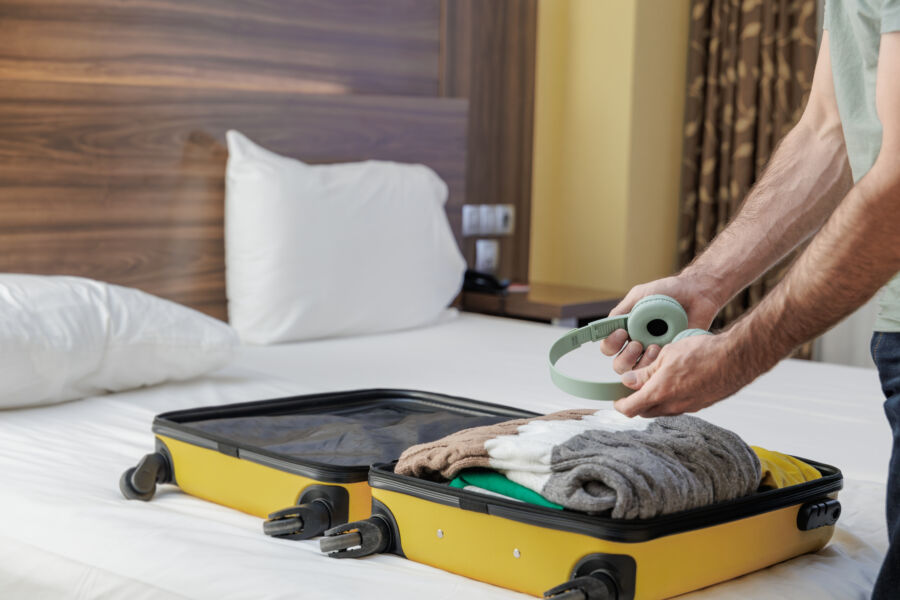
Brazil offers a wide range of places to stay. You can find fancy hotels, comfy mid-range spots, and cheap hostels. Your budget and travel style will help you pick the best option.
Luxury Accommodations
If you want to splurge, Brazil has some amazing high-end hotels. In Rio de Janeiro, you’ll find fancy beachfront resorts with stunning views. These can cost $200 or more per night. Some even have private beaches and top-notch spas.
In São Paulo, luxury hotels often cater to business travelers. You might pay $150-$300 for a night in a swanky hotel here. These places usually have great restaurants and gyms.
For a unique luxury stay, check out the jungle lodges in the Amazon. They offer a mix of comfort and adventure. Prices can vary, but expect to pay at least $200 per night.
Mid-Range Options
Mid-range hotels in Brazil give you good value for your money. In big cities, you can find nice hotels for $60-$150 per night. These often have comfy rooms, free breakfast, and good locations.
Vacation rentals are another great mid-range choice. You can rent apartments or houses, often for less than a hotel room. This is great if you’re traveling with family or friends.
In beach towns, look for pousadas. These are small, family-run inns. They’re usually cheaper than big hotels but still comfy and clean.
Budget Accommodations
Traveling on a tight budget? No problem! Brazil has lots of cheap places to stay. Hostels are your best bet, with dorm beds starting at $15 per night. You’ll find these in most big cities and tourist spots.
Budget hotels are another good option. In less touristy areas, you can find basic but clean rooms for $30-$50 per night. These might not have fancy extras, but they’ll give you a comfy place to sleep.
For a local experience, try couchsurfing. It’s free and lets you stay with locals. Just be sure to read reviews and stay safe.
Food and Dining
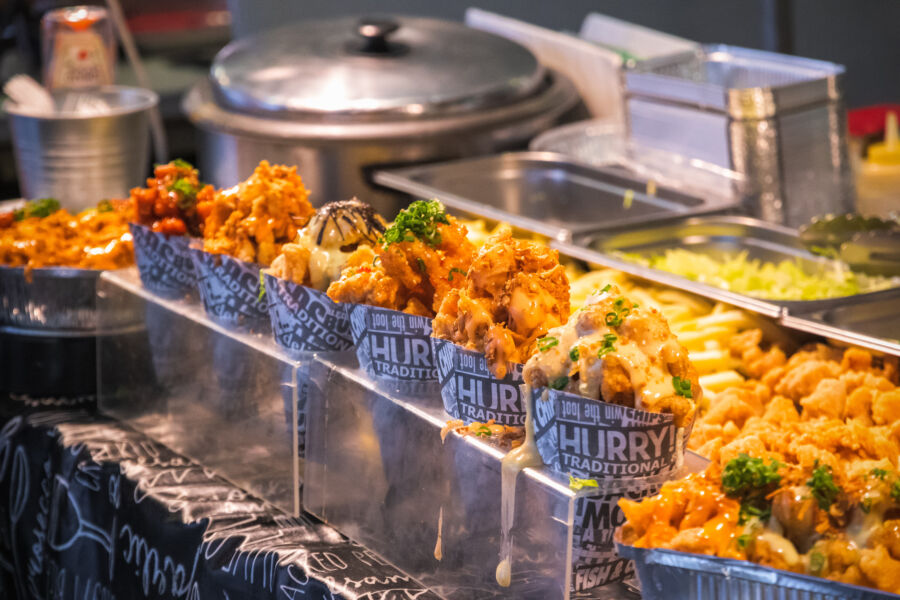
Brazilian cuisine offers a mouthwatering mix of flavors and influences. You’ll find plenty of options to satisfy your taste buds without breaking the bank. Let’s explore the local food scene and what you can expect to spend on meals during your trip.
Local Cuisine
Brazil’s food is as diverse as its landscapes. You’ll want to try feijoada, a hearty black bean and pork stew that’s a national favorite. Don’t miss churrasco, Brazilian barbecue where waiters bring skewers of meat to your table. Coastal areas serve up fresh seafood dishes like moqueca, a fish stew cooked in coconut milk.
For quick bites, try pão de queijo (cheese bread) or coxinha (chicken croquettes). Wash it all down with a caipirinha, Brazil’s national cocktail made with cachaça, lime, and sugar. Street markets are great spots to sample local fruits like açaí and exotic juices.
Food Costs
Eating out in Brazil can fit various budgets. Here’s a breakdown of what you might spend:
- Breakfast: $5-$8
- Lunch: $4-$14
- Dinner: $10-$20
A meal at a cheap restaurant might cost you $5-$15 per person. Mid-range spots typically charge $15-$30 for a meal. Fancy dining can set you back $30 or more.
Street food is a budget-friendly option, with snacks like pastéis or tapioca crepes costing $2-$5. Grocery stores are also great for picking up cheap eats and drinks.
Budget-Friendly Eats
You don’t have to spend a fortune to enjoy good food in Brazil. Look for “por kilo” restaurants where you pay by weight. These offer a variety of dishes at reasonable prices. Many places serve set lunch menus called “prato feito” or “prato do dia” for around $5-$10.
Food courts in shopping malls can be surprisingly affordable. They often have local and international options. Don’t shy away from street vendors – they’re usually safe and offer tasty, cheap eats.
For drinks, stick to local beers or cachaça instead of imported alcohol. Happy hours are common in cities, offering discounted drinks and snacks. And remember, tipping isn’t expected in Brazil, which helps keep costs down.
Activities and Sightseeing
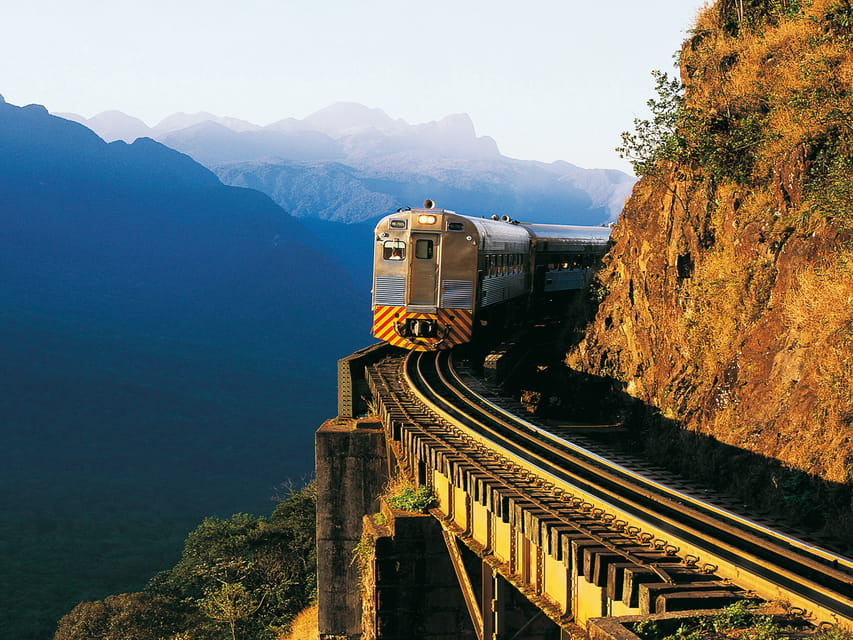
Brazil offers a rich tapestry of experiences for tourists. From iconic landmarks to natural wonders, you’ll find plenty to see and do. Let’s explore some top attractions and their costs.
Cultural Landmarks
Rio de Janeiro’s Christ the Redeemer statue is a must-see. Tickets cost around $15-20 per person. For the best views, go early morning or late afternoon.
In Salvador, wander through the colorful Pelourinho district. Many buildings are free to admire from outside. Guided walking tours start at $25.
Carnival is Brazil’s biggest party. Ticket prices vary widely:
- Street parties: Free
- Samba school rehearsals: $10-30
- Sambadrome parades: $50-500+
Natural Wonders
The breathtaking Iguazu Falls straddle the border with Argentina. Entry fees are about $20 for the Brazilian side. Boat rides that take you close to the falls start at $70.
Exploring the Amazon Rainforest can be pricey but worth it. Multi-day tours from Manaus start around $300 per person. This often includes lodging, meals, and guided excursions.
Beach lovers shouldn’t miss Copacabana in Rio. It’s free to visit, but you might spend $5-10 on beach chair rentals or snacks from vendors.
Entertainment
For amazing city views, take the cable car up Sugarloaf Mountain. Tickets cost about $30 for adults. Go at sunset for a magical experience.
Book a samba show to immerse yourself in Brazilian culture. Prices range from $30-100, often including dinner and drinks.
Football fans can catch a match at Maracanã Stadium in Rio. Ticket prices start at $15 for local games but can be much higher for big matches.
Remember, many cities offer free walking tours. They’re a great way to see the sights and learn about local history on a budget. Just tip your guide at the end!
Regions and Destinations

Brazil offers a mix of vibrant cities, stunning beaches, and wild rainforests. You’ll find unique experiences and varying costs across its diverse regions.
Urban Highlights
Rio de Janeiro is a must-visit city with iconic sights like Christ the Redeemer and Copacabana Beach. Expect to pay around $50-80 per night for a decent hotel. São Paulo, Brazil’s largest city, has world-class restaurants and museums. Hotel prices are similar to Rio’s.
Salvador, in the northeast, is known for its colorful colonial architecture and Afro-Brazilian culture. It’s a bit cheaper, with hotels averaging $40-60 per night. Brasilia, the capital, is worth a visit for its unique modernist architecture.
Coastal Retreats
Brazil’s coastline offers plenty of beach options. Boa Viagem in Recife is a popular urban beach with hotels ranging from $30-100 per night. For a more luxurious getaway, try Fernando de Noronha, an island paradise off the northeast coast. It’s pricey, with accommodations starting at $100 per night.
Fortaleza has beautiful beaches and a lively nightlife scene. You can find budget-friendly hotels for $25-50 per night. Remember to factor in transportation costs between coastal destinations.
Adventure in the Amazon
Manaus is the gateway to the Amazon rainforest. You’ll find hotels from $30-80 per night here. River cruises and jungle lodges are popular ways to explore the Amazon, with prices ranging from $100-300 per day, all-inclusive.
The Pantanal, a vast tropical wetland, offers great wildlife viewing opportunities. Multi-day tours typically cost $150-250 per day, including accommodation and guides. Budget extra for flights or long bus rides to reach these remote areas.
Understanding Trip Expenses

Brazil trips can be pricey, but there are ways to keep costs down. Your biggest expenses will be flights, accommodations, and activities. Let’s break down what you can expect to spend and how to save some cash.
Flight Costs
Getting to Brazil isn’t cheap. Flights from the U.S. usually cost $550-$800 per person. Prices go up during popular times like Carnival. Here are some tips to save on airfare:
• Book 2-3 months ahead for the best deals
• Fly mid-week for lower fares
• Check budget airlines like Azul and GOL
• Use flight comparison sites to find deals
• Consider flying into São Paulo – it’s often cheaper
Remember, flight prices change fast. When you see a good deal, grab it! Don’t forget to factor in baggage fees too.
Activity Expenses
Brazil’s got tons to do, but costs add up fast. Here’s what you might spend on popular activities:
• Christ the Redeemer visit: $15-$20
• Sugarloaf Mountain cable car: $25-$30
• Iguazu Falls tour: $50-$100
• Amazon jungle trek: $100-$300 per day
• Scuba diving: $80-$150 per dive
Many museums have free days each month. Check their websites to save some cash. Street festivals are often free too. For pricey tours, book online in advance for discounts.
Tips for Saving Money
Brazil can be expensive, but there are ways to cut costs:
- Stay in hostels or Airbnbs instead of hotels
- Eat at local spots instead of tourist restaurants
- Use public transit – it’s cheap and efficient
- Visit during shoulder season (Apr-Jun or Sep-Nov)
- Look for free walking tours in major cities
- Buy a Brazilian SIM card for cheaper data
Consider getting a credit card with no foreign transaction fees. Those small charges add up fast! And don’t forget to haggle at markets – it’s expected and can save you lots.
Final Advice
Plan your Brazil trip wisely to get the most bang for your buck. Start by picking the right time to visit. Avoid peak seasons like Carnival when prices skyrocket. Instead, aim for shoulder seasons when you can snag better deals.
Be smart about where you stay. Mix it up between budget hostels and mid-range hotels. You’ll save cash and get a taste of different experiences. Don’t forget to check out local guesthouses – they’re often cheaper and more authentic.
Food can be a big expense, but it doesn’t have to be. Try local street food and small family-run restaurants. They’re usually tasty and wallet-friendly. For a splurge meal, do it at lunch when prices are lower.
Transportation can eat into your budget if you’re not careful. Use public transit in cities – it’s cheap and efficient. For longer trips, look into overnight buses. They’re comfy and save you a night’s accommodation.
Here’s a quick breakdown of daily costs:
- Budget traveler: $30-50
- Mid-range: $100-150
- Luxury: $250+
Remember, these are just estimates. Your actual costs will depend on your travel style and choices. With some smart planning, you can have an amazing Brazil trip without breaking the bank.



